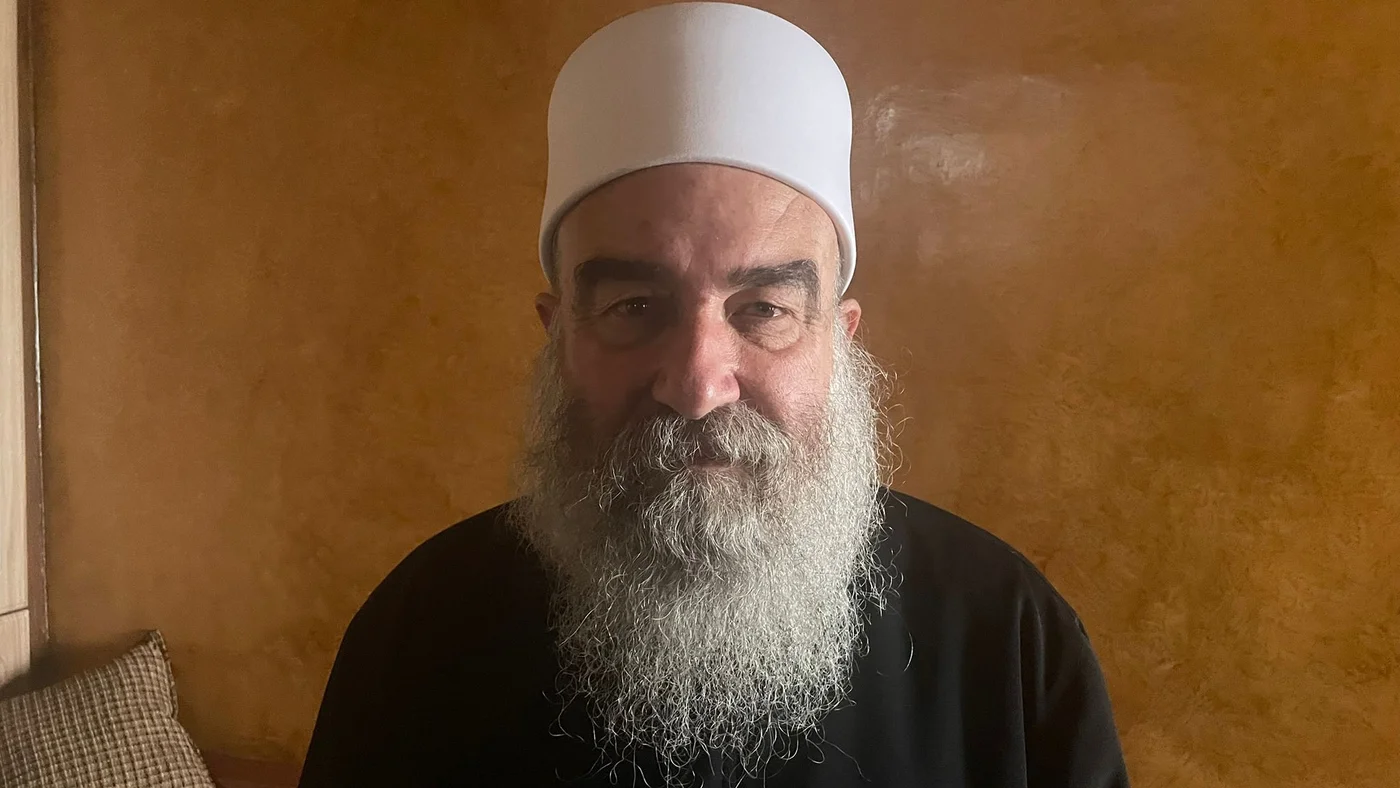Sheikh Hikmat al-Hijri, the spiritual leader of the Druze Unitarian community in Syria, shared his vision for the country’s transitional phase and future during two recent interviews with Syria TV and 963+. Addressing the challenges facing Suwayda and the broader Syrian landscape, al-Hijri called for justice, national unity, and inclusive governance as the cornerstones of a new Syrian state.
A Transitional Phase Rooted in Cooperation
Sheikh al-Hijri emphasized that the current stage in Syria’s history is transitional and requires collaborative efforts from all parties. He underlined the readiness of the people of Suwayda to participate in managing provincial affairs—security, judicial, and service sectors—while insisting that major decisions must be made through consensus and coordination with local communities.
“Our region remains in a state of anticipation after decades of crises,” al-Hijri noted. He emphasized the importance of working closely with the interim administration to ensure the success of the transitional phase.
Decentralization and a Civil State
The Druze leader highlighted the significance of decentralized governance and the separation of powers as essential components of a stable and just Syria. He advocated for the establishment of a civil state rooted in law, justice, and citizenship, where freedoms are guaranteed for all without discrimination.
“A civil state is one where laws protect everyone’s rights while respecting the diversity and privacy of Syria’s various communities,” he explained.
A National Conference for a New Constitution
Sheikh al-Hijri stressed the need for a national conference to draft a new constitution that reflects the aspirations of all Syrians. He proposed that the conference include legal, political, and economic experts, ensuring comprehensive representation across all social, religious, and ethnic groups.
“This conference must go beyond traditional meetings,” he said. “It should serve as a launching pad for the establishment of a modern Syrian state.”
To achieve this, he called for meticulous organization, including clear themes and agendas, to guarantee meaningful and actionable outcomes.
Rejection of Secession
Hijri dismissed any claims of Suwayda seeking secession, affirming the region’s commitment to Syria’s unity. He stated, “From the beginning of the revolution in 2011, Suwayda has stood firmly against separation, instead advocating for national unity and collaborative governance.”
While acknowledging some concerns regarding monopolization of power, he expressed optimism about the transitional administration and its ability to reflect the diversity and aspirations of the Syrian people.
On the issue of disbanding local factions and surrendering weapons, Hijri insisted that this could only happen once a real national army is formed and a state based on law and constitutional governance is established. He acknowledged the historical role of factions in defending Suwayda during the previous regime’s rule but stressed the need for a broader, organized security structure.
Aspirations for the Future
Looking ahead, Sheikh Hijri expressed hope for a wider representation in the future Syrian government. He emphasized the need for trust-building measures, particularly the drafting of a constitution that assures inclusivity and protects the rights of all Syrians. He called for cooperation and dialogue among all political actors and international bodies to ensure a unified and prosperous future.
“The Syrian people now face the challenge of building a state of citizenship that is unique in its historical homogeneity,” he said. “The next phase requires patience, determination, and a commitment to the greater good.”
In conclusion, Sheikh Hijri underscored Suwayda’s role as a vital component of a unified Syria. He rejected unilateral decisions and instead advocated for collective action, emphasizing the importance of diplomacy and inclusive governance as pillars of stability and progress in the country’s transitional journey.


